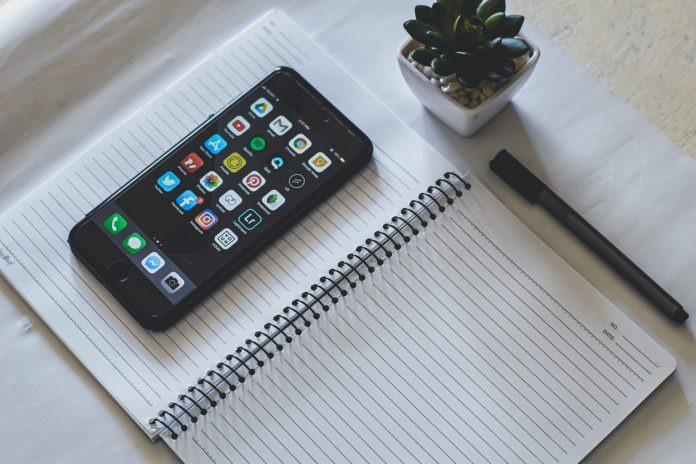A new study has found that three-quarters of small businesses and sole traders rarely send invoices in the post, but instead, use apps like WhatsApp, Facebook Messenger and Microsoft Teams.
The study also found that an overwhelming 97 per cent of traders believe that the mobile ‘office in the pocket’ has helped to improve their business. As well as this, 79% say that they would experience problems in their work if they were without them, according to research by Vodafone Business.
More than half of the small business owners who took part in the study said using traditional methods of communication and invoicing would be more time-consuming, and 83 percent revealed that they had gained clients by switching to using app-based methods.
Using these systems for communication, either internally or externally seems to be the major attraction for these professionals as 45% said that WhatsApp was the most important app for the daily running of their job while 20% said Microsoft Teams was the most crucial for messaging.
The findings are revealed following the launch of the latest episode of Vodafone Business’ Digital SOS documentary series. Starring Vodafone Business brand ambassador and entrepreneur Steven Bartlett, the series is aimed at helping SMEs supercharge their businesses by making better use of digital technology.
The latest episode sees Steven paying a visit to, D.A.Y, a small fashion boutique based in Peckham, South East London to help boost its online sales with the support of Vodafone Business’ V-Hub – a free online support service that provides expert guidance, knowledge, tools and training for small-medium businesses.
Maria Koutsoudakis, Brand Director at Vodafone UK, said: “Our findings show how vital applications, like Microsoft Teams and WhatsApp, are to small businesses up and down the UK. Whether apps are used for customer communication, invoicing, employee training, or other business activities, they require connectivity to thrive and grow their business. As the nation’s network that connects more than 550,000 unique businesses across the UK, we know that strong and reliable mobile connectivity is essential for small businesses to stay connected to the customers, employees and places they care about.”
With such a large focus on using these apps in daily business, the Vodafone Business study also found that many businesses and employees would significantly struggle without them.
21% conclude that if they were placed into a position without these apps and systems it could have significant implications on their livelihoods with 9% believing “It would endanger the existence of my business running”.
On top of this, another 9% feel that they might “Potentially lose their business” and a further 3% openly accept that they “Would not be able to survive without them.”
Joe Roberts-Walker, Founder at Mejuicer, said: “I remember creating our first business group chat and felt proud of what I’d built as a standalone founder. Even now when I add people to our network, it’ something tangible to see that we’re growing.
“Now we use our group chat every day and its completely improved the efficiency of the day-to-day running of our small business. From instant communication, and sharing content, to instructions, feedback and handovers – we use it for everything!”
Participants in the survey have said that these apps have most improved their ability to communicate externally with clients with 46% believing this to be the best advantage these apps contribute towards business.
While the majority (80%) of firms use apps like WhatsApp and Microsoft Teams to conduct their business, nearly half (46%) use them most frequently to communicate with clients while 20% use them most for speaking to staff.
Amelia Lawes, Founder at Apex Gym, said: “Group chats have been fundamental to helping us build a community at Apex Gym, improving our ability to communicate externally with our clients as well as having one central point of communication to streamline our activities – we’d be pretty lost without our group chat!”


